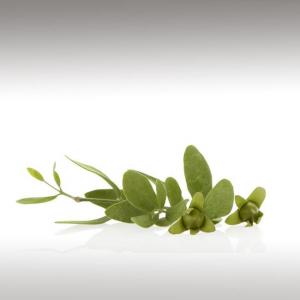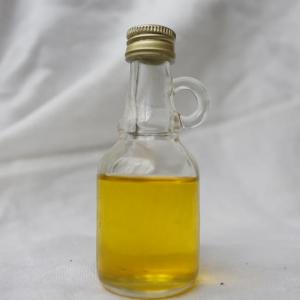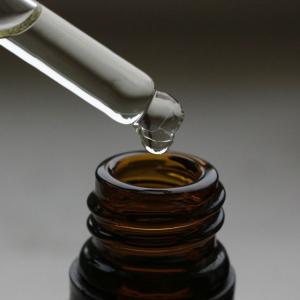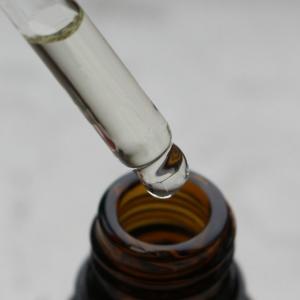
JOJOBA OIL (SIMMONDSIA CHINENSIS) - BASE OILS

BASE / GENERAL DATA
Information submited: March 31, 2014 Modified: April 10, 2018 By: OperaDreamhouse
Jojoba oil is the liquid produced in the seed of the Simmondsia Chinensis (Jojoba) plant, a shrub, which is native to southern Arizona, southern California, and northwestern Mexico. Theoil makes up approximately 50% of the Jojoba seed by weight. Jojoba oil is obtained by “pressing” the Jojoba seeds.
Jojoba (Simmondsia Chinensis) is generally classified as non-toxic or harmful.
Legend has it that the Native Americans used Jojoba oil for a variety of purposes, ranging from hair conditioners, to skin lubricants to even making coffee-like beverages.
Unrefined Jojoba oil appears as a clear golden liquid at room temperature with a slightly nutty odor.
An equal number of male and female flowers are borne on separate plants. The plant can withstand extreme daily fluctuations of temperature and thrives in well-drained, desert soils and coarse mixtures of gravel and clay. The mature plant produces about 5 to 10 pounds of seeds, which range in size between the Coffee bean and Peanut. It is an important forage plant for desert bighorn sheep and mule deer.
Jojoba oil is derived from the seeds (beans) within the fruits. This oil, classified as a wax, is easily absorbed by the skin.
Thefemale variety of the plant produces a fruit, which in turn bears a seed containing a liquid Wax. This oily Wax is similar to vegetable oil, and is considered “unusually purea": it contains essentially all-wax esters, Vitamin E, andphospholipids. It also has an incredibly long shelf life.
Very stable - Jojoba oil does not become rancid or lose antioxidants even after long periods of storage. The melting point of Jojoba oil is approximately 10°C and the iodine value is approximately 80. Jojoba oil is relatively shelf-stable when compared with other vegetable oils mainly because it does not contain triglycerides, unlike most other vegetable oils such as Grape Seed oil and Coconut oil. It has an oxidative stability index of approximately 60, which means that it is more shelf-stable than Safflower oil, Canola oil, Almond oil or Squalene but less than Castor oil and Coconut oil.
Jojoba oil is used as a replacement for Whale oil and its derivatives, such as cetyl alcohol. The ban on importing whale oil to the US in 1971 led to the discovery that Jojoba oil is "in many regards superior to Sperm oil for applications in the cosmetics and other industries".
Jojoba (Simmondsia Chinensis) is generally classified as non-toxic or harmful.
Jojoba oil have light to medium, distinct but pleasant aroma and thisoil is golden yellow in color.
Jojoba (Simmondsia Chinensis) is generally classified as non-toxic or harmful.
Legend has it that the Native Americans used Jojoba oil for a variety of purposes, ranging from hair conditioners, to skin lubricants to even making coffee-like beverages.
Unrefined Jojoba oil appears as a clear golden liquid at room temperature with a slightly nutty odor.
An equal number of male and female flowers are borne on separate plants. The plant can withstand extreme daily fluctuations of temperature and thrives in well-drained, desert soils and coarse mixtures of gravel and clay. The mature plant produces about 5 to 10 pounds of seeds, which range in size between the Coffee bean and Peanut. It is an important forage plant for desert bighorn sheep and mule deer.
Jojoba oil is derived from the seeds (beans) within the fruits. This oil, classified as a wax, is easily absorbed by the skin.
Thefemale variety of the plant produces a fruit, which in turn bears a seed containing a liquid Wax. This oily Wax is similar to vegetable oil, and is considered “unusually purea": it contains essentially all-wax esters, Vitamin E, andphospholipids. It also has an incredibly long shelf life.
Very stable - Jojoba oil does not become rancid or lose antioxidants even after long periods of storage. The melting point of Jojoba oil is approximately 10°C and the iodine value is approximately 80. Jojoba oil is relatively shelf-stable when compared with other vegetable oils mainly because it does not contain triglycerides, unlike most other vegetable oils such as Grape Seed oil and Coconut oil. It has an oxidative stability index of approximately 60, which means that it is more shelf-stable than Safflower oil, Canola oil, Almond oil or Squalene but less than Castor oil and Coconut oil.
Jojoba oil is used as a replacement for Whale oil and its derivatives, such as cetyl alcohol. The ban on importing whale oil to the US in 1971 led to the discovery that Jojoba oil is "in many regards superior to Sperm oil for applications in the cosmetics and other industries".
Jojoba (Simmondsia Chinensis) is generally classified as non-toxic or harmful.
Jojoba oil have light to medium, distinct but pleasant aroma and thisoil is golden yellow in color.

SPIRITUAL PRACTISES DATA

MEDICINE / HEALTH DATA

BEAUTY / COSMETICS DATA
Information submited: March 31, 2014 Modified: April 10, 2018 By: OperaDreamhouse
Good for all skin types ( very good for acne, dry and aging skin tipes)
Jojoba oil few of many qualities for skin are reducingwrinklesand lightening skin marks, scars and stretch marks. For actual skin ailments such as acne, inflammation of the skin, Jojoba oil is very useful because it balances properties of the skin and moisturizes it naturally with its Sebum oil which is identical to Sebum oil produced by human skin.
In particular, such products commonly containing Jojoba are lotions and moisturizers, hair shampoos and conditioners. Or, the pure oil itself may be used on skin, hair, or cuticles.
Jojoba oil has many qualities in helping the skin cells reserve and retain moisture. It is very gentle and so it suits all types of skin even the most sensitive. It can effectively penetrate the skin easily to improve flexibility and elasticity.
Jojoba oil is useful for many conditions: it is useful for treating both excessive sebum production (oily skin and/or acne) because it can dissolve the Sebum, as well as underproduction, such as dry skin, dandruff or other dry skin conditions like eczema and psoriasis.
Simmondsia Chinensis a good emollient choice for use in cosmetics and is suitable for dry, sensitve, and acne-prone skin types.
Jojoba oil is great for all hair types. Conversely, it can also be used to remove excess Sebum and product buildup on hair. It is also used topically to encourage the regrowth of hair in people who are balding.
This oil acts as a natural anti-inflammatory and is a good choice for use in massage and for inflamed skin. It has a nourishing properties also.
Since Jojoba oil is not an eye irritant, nor allergenic, you can use it to remove eye makeup. It also easily removes foundation, blush, and lipstick.
Jojoba oil good for:
Massage oil
After-sun moisturizer
Stretch mark treatment
Sebum substitute
As a way to remove hair product residue
Cleanser
Treating acne and cold sores
Scalp and hair moisturizer
Hair detangler
As a nightly facial moisturizer
As an after-shower body moisturizer
As makeup remover
As a lip balm
As dried cuticle treatment
As a shaving prepper.
Jojoba oil few of many qualities for skin are reducingwrinklesand lightening skin marks, scars and stretch marks. For actual skin ailments such as acne, inflammation of the skin, Jojoba oil is very useful because it balances properties of the skin and moisturizes it naturally with its Sebum oil which is identical to Sebum oil produced by human skin.
In particular, such products commonly containing Jojoba are lotions and moisturizers, hair shampoos and conditioners. Or, the pure oil itself may be used on skin, hair, or cuticles.
Jojoba oil has many qualities in helping the skin cells reserve and retain moisture. It is very gentle and so it suits all types of skin even the most sensitive. It can effectively penetrate the skin easily to improve flexibility and elasticity.
Jojoba oil is useful for many conditions: it is useful for treating both excessive sebum production (oily skin and/or acne) because it can dissolve the Sebum, as well as underproduction, such as dry skin, dandruff or other dry skin conditions like eczema and psoriasis.
Simmondsia Chinensis a good emollient choice for use in cosmetics and is suitable for dry, sensitve, and acne-prone skin types.
Jojoba oil is great for all hair types. Conversely, it can also be used to remove excess Sebum and product buildup on hair. It is also used topically to encourage the regrowth of hair in people who are balding.
This oil acts as a natural anti-inflammatory and is a good choice for use in massage and for inflamed skin. It has a nourishing properties also.
Since Jojoba oil is not an eye irritant, nor allergenic, you can use it to remove eye makeup. It also easily removes foundation, blush, and lipstick.
Jojoba oil good for:
Massage oil
After-sun moisturizer
Stretch mark treatment
Sebum substitute
As a way to remove hair product residue
Cleanser
Treating acne and cold sores
Scalp and hair moisturizer
Hair detangler
As a nightly facial moisturizer
As an after-shower body moisturizer
As makeup remover
As a lip balm
As dried cuticle treatment
As a shaving prepper.

FOOD / COOKING DATA
COMMENTS
No comments.
Newest mixtures containing Jojoba Oil (Simmondsia Chinensis):

Rose essential oil dilution
July 9, 2015

Home made Vanilla oil extract
May 13, 2015

Balm for burned skin and acne healing
February 1, 2015

Regenerating mixture for aging skin
January 30, 2014





